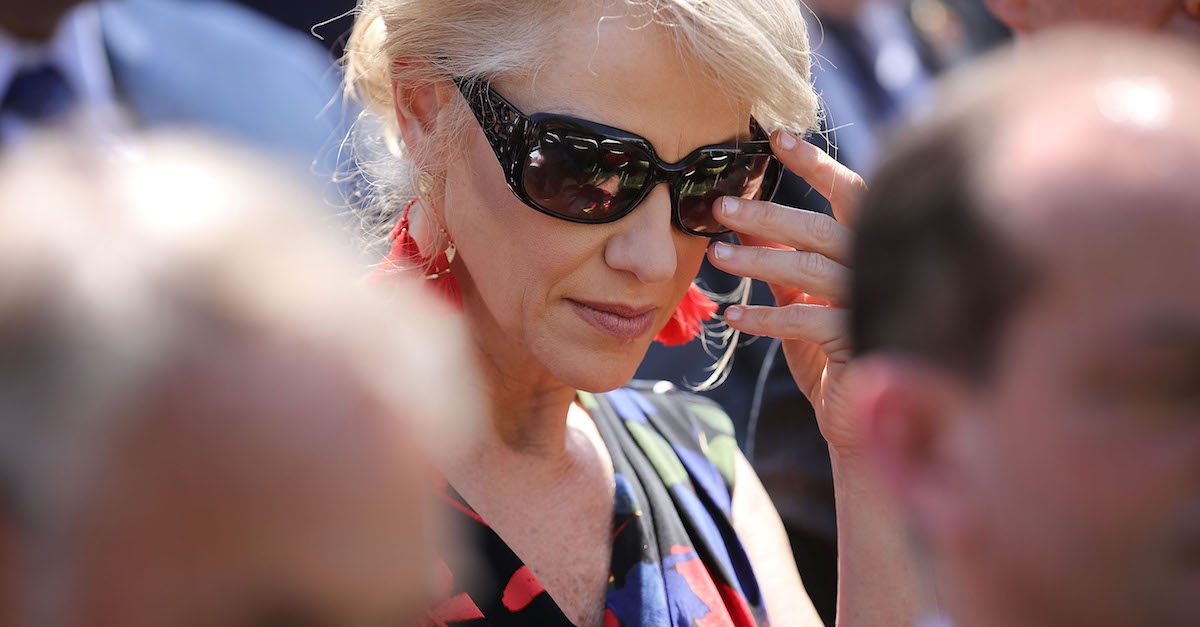
Supreme Court Justice Clarence Thomas recently suggested that it might be time to reconsider the 1964 Supreme Court landmark decision in New York Times Co. v. Sullivan. White House counselor Kellyanne Conway‘s attorney husband George was none too pleased about the suggestion because, reading between the lines, he would love to continue criticizing President Donald Trump without fear of reprisal.
Conway made the remarks on Friday at the University of Georgetown Law Center event “Challenges to the Rule of Law in America.” The event was put together by Georgetown Law’s Institute for Constitutional Advocacy & Protection (ICAP) and a group Conway started, called Checks and Balances.
You may remember that Conway started Checks and Balances as a haven for conservative and libertarian lawyers alarmed by President Trump’s attacks on the rule of law. He spoke about the purpose of the group again on Friday. “We thought there was a little too much silence on the subject on the right side of the political spectrum,” he said.
Conway took aim at attacks on the Department of Justice, saying, “If people were to get indicted or not indicted on the basis of whether the president likes them, we wouldn’t have a republic, we would have a banana republic.” Conway also said that he was not exactly hyped about Clarence Thomas’ call to reconsider New York Times v. Sullivan. He hoped that the Supreme Court would let it be.
Conway inspired laughter when he explained why.
“Plus, I kind of like the fact that you can tweet at rich public officials without fear of retribution in the courts,” he said.
In case you are not familiar with the context of any of this, Thomas recently denied a Bill Cosby accuser’s petition to have her dismissed defamation case reviewed by SCOTUS. Thomas then argued that New York Times Co. v. Sullivan may have been a mistake.
This precedent established the “actual malice” standard for public figures in libel law. What this meant was that public figures could not sue for libel or slander unless they could reach the “almost impossible” standard (Thomas’ words) of proving actual malice, which means having knowledge that a statement was false or showing reckless disregard for whether a statement is true.
“The States are perfectly capable of striking an acceptable balance between encouraging robust public discourse and providing a meaningful remedy for reputational harm,” Thomas said. “We should reconsider our jurisprudence in this area.”
Floyd Abrams, the preeminent First Amendment lawyer and father of Law&Crime founder Dan Abrams, previously said Thomas’ suggestion was more than a troublesome one for American democracy.
“New York Times Co. v. Sullivan is the single most important First Amendment case ever decided by the Supreme Court,” he told Law.com. “The case is not just a legal landmark.”
“More than any other, it is an articulator of and defender of American democracy,” he added.
Not only would overturning this decision have a chilling effect on the press, it would also have a chilling effect on Conway’s tweets about the president.
[Image via Chip Somodevilla/Getty Images]